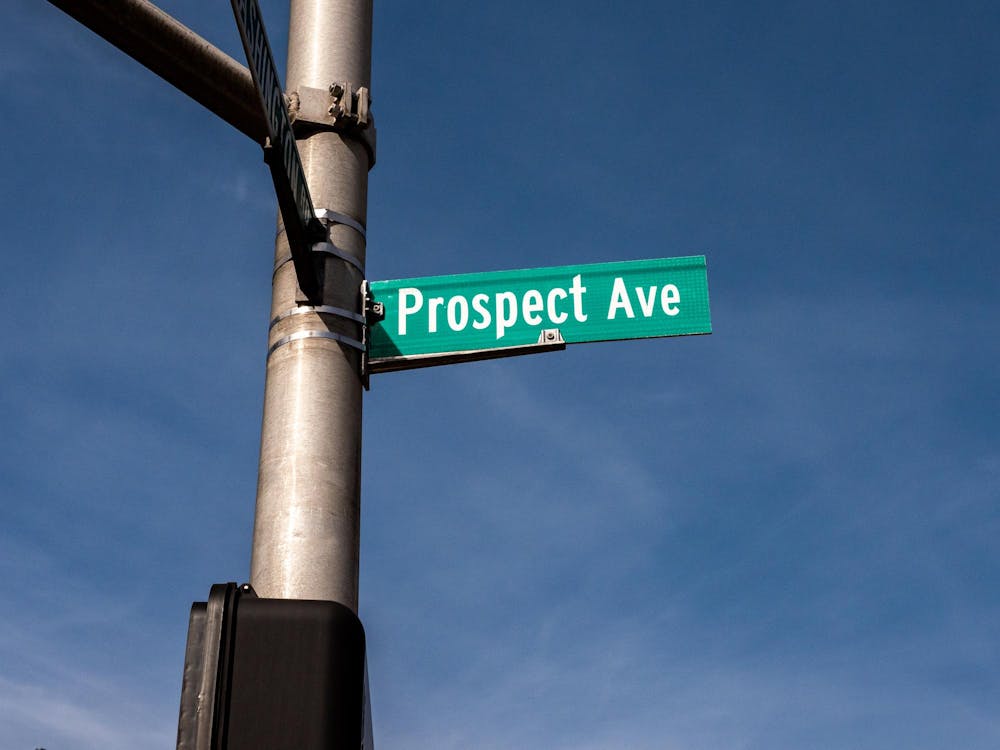A house in the town of Princeton constructed in 1870 that has been home to several generations of occupants faces possible demolition if Mary Moss Park is to be expanded.
The town had planned to expand the half-acre park and renovate various aspects of the park, including replacing a wading pool with a “spray ground,” which would include a number of sprinklers.
This plan met resistance, however, when local residents began to speak out against demolishing the house located at 31-33 Lytle St., and the town and residents are still discussing the next steps.The home is privately owned and was slated to be demolished in order to make room for two newly constructed houses, Mayor Liz Lempert said.
“When the municipality learned that the demolition was slated to occur, we reached out to the developer to see if he’d be willing to sell the property to the municipality in order for the park expansion,” she said.
Local real estate developer Roman Barsky holds the demolition permits, which he obtained last October, Lempert added.
Barsky did not respond to requests for comment.
Mercer County offered Open Space funding, which provides money to help preserve areas of land,in order to match the municipality’s contribution towards the park, Lempert said. She added that the funding would not be available for building acquisition.
“We might be able to partner with Habitat for Humanity or some other private group that would take on the responsibility and cost of rehabilitation,” she said.

Due to the house’s condition, cost estimates currently start at $200,000 but could be substantially higher, Lempert said.
Recently, a New Jersey Supreme Court ruling said that courts could enforce towns’ affordable housing requirements. However, this will not impact decisions on the potential Lytle Street property, Lempert said.
“The Council typically turns to our Affordable Housing Board for advice about how best to appropriate those funds,” she said. “The board advised against using affordable housing funds to purchase the Lytle house because of the high price tag.”
While the town has a trust fund designated for affordable housing and renovations on existing units, it is still necessary to be fiscally responsible with the funds, Lempert said.

However, the house characterizes those constructed in the 1870s and is located in the heart of a neighborhood with significant history, Kip Cherry, a member of Witherspoon-Jackson Neighborhood Historic District committee, said.
The area was primarily settled by African-Americans from the South, as well as Italian Americans, and remained segregated for decades, Cherry said. The wading poolalso has symbolic importance that harkens back to the age of segregation, as residents were unable to use other local pools, Cherry said.
She said that many residents did not want an expansion of Mary Moss Park because they believe the size is fine for the scale of the neighborhood, and a larger pool for older children is only a few blocks away.
“We want to evaluate the possibility of reusing the structure and probably adding a couple more units to create more affordable housing,” Cherry said, noting that local residents are not focused on preserving the house as a museum but renovating it for affordable housing.
There are two primary impediments to rehabilitating the house, she said, including the relatively expensive price of the land and the cost of rehabilitating the house.
“The town has limited funds,” Cherry said. “The Open Space fund could be used for historic preservation, but it couldn’t be used for affordable housing, so we would have to find another source of funds for that."
A number of citizens are also planning on working with Habitat for Humanity, which would also assist with fundraising, to restore the house, Cherry said, adding that she has spoken with the owner of the property and is currently waiting to hear back from him. Appraisals and cost estimates are still in the works.
While it would be too costly to purchase the property from the general budget or the affordable housing trust fund, a number of residents are not happy with the idea of purchasing the property using Open Space funds, councilwoman Jenny Crumiller said.
“It seems to me that I would want the expanded public space if I lived there, [but] I don’t live there,” she said.“[However,] at several meetings, the vast majority of residents who spoke strongly opposed the playground expansion, and I couldn’t brush their objections aside.”
Several residents are working to allocate funds to purchase the house, Crumiller noted.
“If they can figure out a way to do it, I would support their effort,” she said.







